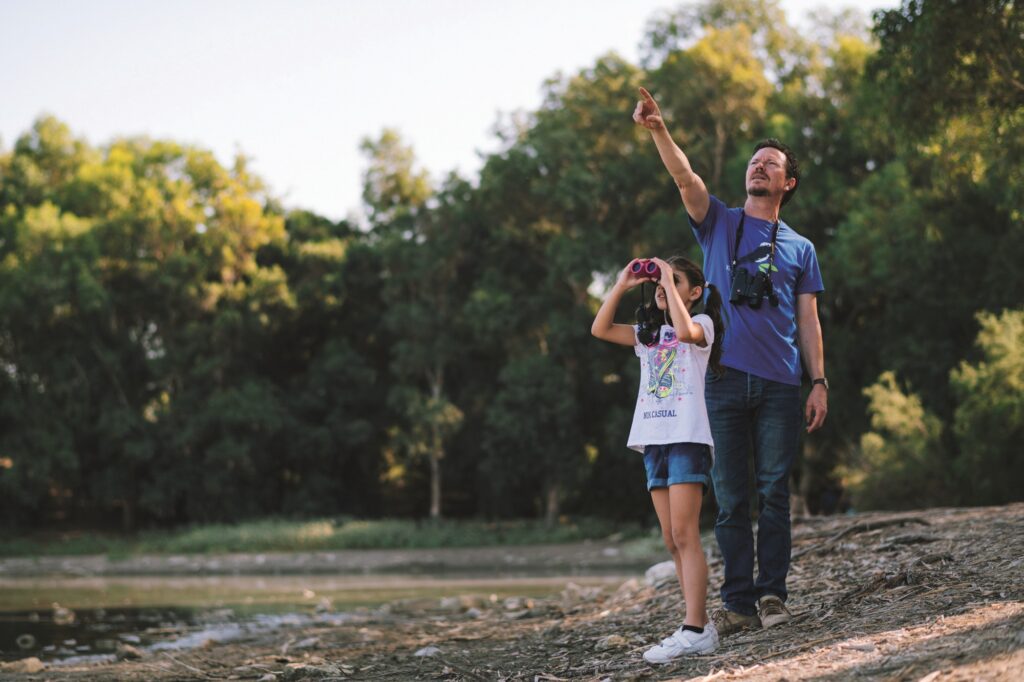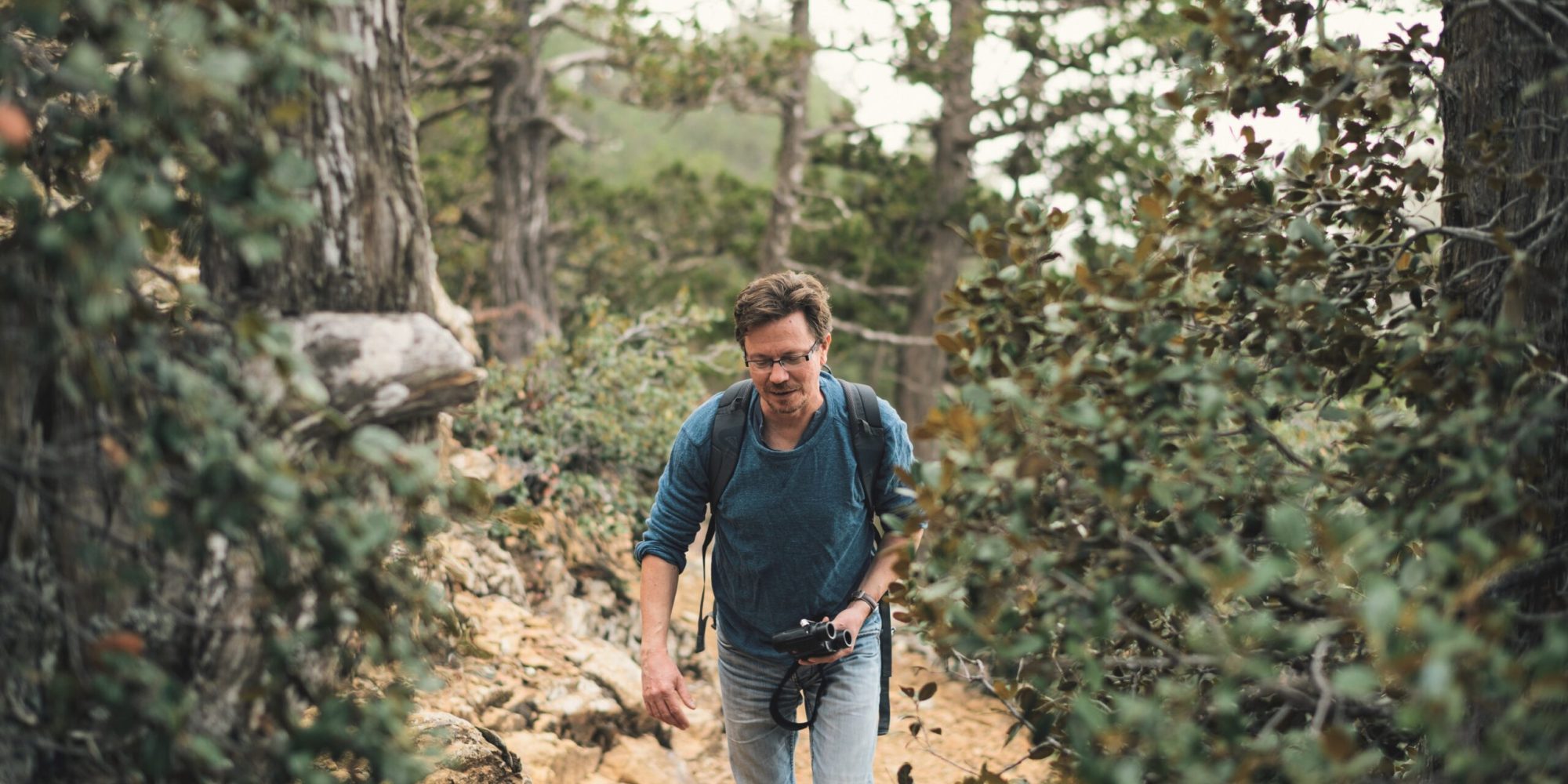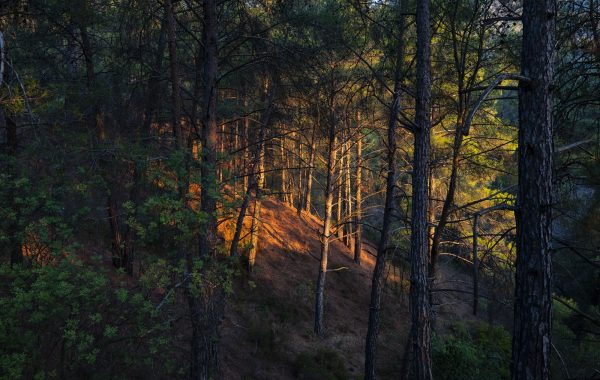Martin Abbas Hellicar, our beloved Director, colleague, mentor, and friend, is no longer with us. Martin tragically passed away on 15 June 2024, following a car accident. He committed his life to the preservation of Cyprus’ natural heritage, and his influence has left an everlasting impression on the island’s environmental landscape.
Martin was born on 22 February, 1968, in Durham, UK, and grew up in a family of six children. His parents, Eric and Margaret, met in Edinburgh and relocated to Cyprus in 1969. Growing up in a rural area near Nicosia, Martin developed a love for nature from an early age.
Martin frequently told the story of the day he spotted a male Stonechat for the first time at the age of 15, in a muddy field somewhere near Dali. This bird, the size of a sparrow, held a special place in Martin’s heart as it was the first species he successfully identified using a bird guide and binoculars. The Stonechat sparked a new passion for Martin, leading to an interest in nature conservation beyond just birdwatching.
Martin studied ecology at Lancaster University, followed by a Master’s at York University. This scholarly pursuit laid the foundation for his work in conservation, guided by his belief in the sustainable management of our countryside . His continuous thirst for learning culminated in a PhD from the University of Cyprus, where his thesis explored the impact of grazing on biodiversity.
Before the start of his conservation career, Martin made significant contributions as a journalist. He wrote and presented the news at CyBC, Cyprus’ public broadcasting service, for a number of years after which he joined the English-speaking newspaper “Cyprus Mail” in 1993 and eventually became its chief reporter. His skill in simplifying complex environmental issues and understanding the island’s political dynamics was crucial when he joined BirdLife Cyprus in 2003.
Reduction in Bird Trapping: With support from the BirdLife partnership (BirdLife Europe, RSPB – BirdLife in the UK, NABU – BirdLife Germany, BirdLife Switzerland), Martin spearheaded efforts that resulted in 92% reduction in bird trapping levels with the use of mist nets since 2002. Despite ongoing challenges, his relentless advocacy helped curb the illegal slaughter of birds, with tangible improvements in enforcement, both in the Republic and in the SBAs, and to raise awareness.
Creation of Thkio Mosfilies: As part of raising awareness and changing hearts and minds in the heart of the trapping hotspot of Famagusta district, BirdLife Cyprus set up its first ever nature reserve in Frenaros under Martin’s guidance. “Thkio Mosfilies” is our first targeted effort to create and maintain a rich and diverse habitat that supports plants, insects, birds, and other wildlife as well as an outdoor education space where families and children from the local communities and beyond can visit, learn and interact with the natural world around them through our educational programmes, workshops and events.
Site protection, management and restoration: Martin worked for the designation of Important Bird and Biodiversity Areas (IBAs) to Natura 2000 sites so that they enjoy legal protection status. As a result, all IBAs under the effective control of the Republic of Cyprus and within the Sovereign British Bases have been included in the Natura 2000 network or designated as equivalent. And as Martin very well knew, designation is only the first step. It is for this reason that he constantly and tirelessly stressed the importance of protection and proper management. Beyond the much needed protection, Martin worked hard to achieve the implementation of measures that meet the ecological requirements of key species and habitats. He also advocated for site wardening and monitoring, which are essential to assess if management efforts are working. Engagement with and involvement of local communities were foundational to his approach, recognizing that conservation is most effective and long term when it is inclusive and participatory. He also strongly supported the restoration of degraded habitats and ecosystems, and believed that conservation efforts should focus on enhancing and restoring nature, rather than just stopping further harm.
Saving the Griffon Vulture from extinction: One of Martin’s notable flagship projects was the conservation of the Griffon Vulture. From a population of just 10 vultures in 2020, concerted efforts led by Martin have increased their numbers to 38 thanks to the EU-funded project “LIFE with Vultures”. Project actions included tackling poisoning, mitigating collisions and electrocution with energy infrastructure, and restocking the population . Martin believed that by saving the Griffon Vulture we can restore ecological processes for the benefit of our society over the long term.

Inspiring the younger generations: Martin was a strong advocate for inspiring the younger generations. He believed in getting children more connected with nature and instilling in them curiosity and empathy towards the natural world. He saw education and meaningful experiences in nature as a powerful tool to shape active, environmentally conscious citizens. With his leadership, BirdLife Cyprus’ educational programme flourished, which included the recruitment of an Education Officer. As a result, BirdLife Cyprus connects with around 1,500 children annually, fostering in them an appreciation and admiration for the natural world.
Martin’s impact endures in the bird populations and habitats he devoted himself to conserving in Cyprus and beyond through the BirdLife Partnership. Birds know no borders, and neither did Martin who was always a strong supporter and looked for possibilities for bi-communal cooperation. He had a unique talent for bringing people together, fostering dialogue, and building consensus without confrontation. He also had a profound understanding of nature’s intricate balance and believed passionately in not forgetting the common species, whether this was a House Sparrow or a Common Stonechat. His advocacy for a balanced approach to conservation was rooted in appreciating and protecting the commonplace, not least because (as scientists tell us) it is the common creatures that often play the biggest role in keeping the natural system healthy. He argued that we must consider the landscape as a whole, including the less picturesque and ‘special’ places. Martin would refer to the ugly reality of the retreat of nature and the undermining of ecosystems as a case of “death by a thousand cuts,” with many of these cuts going unnoticed and unchallenged.
We deeply miss Martin, who was not just our Director, but also a colleague, mentor, and friend whom we cherished. His infectious humour, kindness, and optimism spread to others. Martin’s passion was evident, whether he was dealing with the intricacies of conservation policy or enjoying the simple pleasure of birdwatching with close friends. We will carry forward his vision and passion in our ongoing work, following his footsteps.
Rest in peace, Martin. Your work, your spirit, and your love for nature will continue to guide us.
The BirdLife Cyprus team




